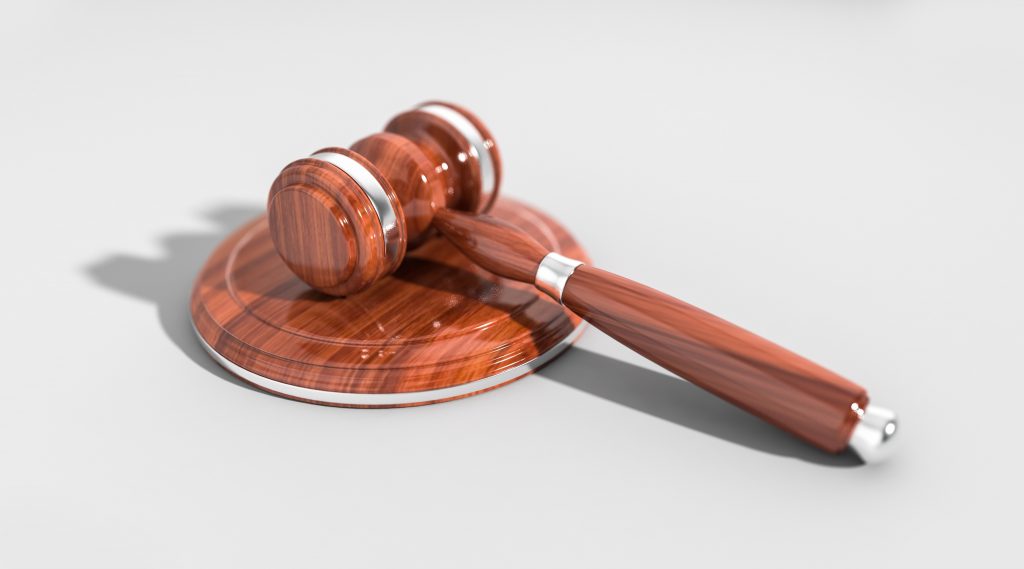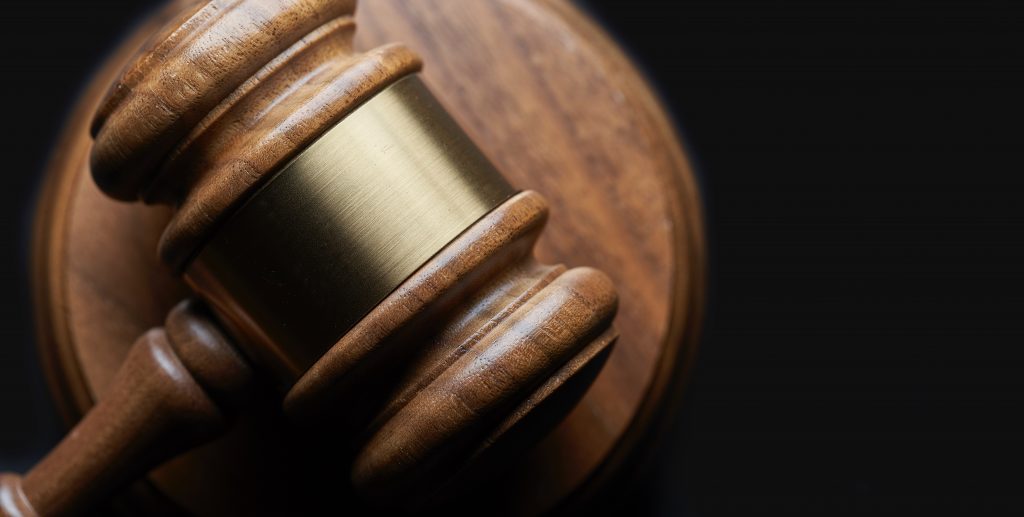 Trial courts can make mistakes. Some mistakes are permanent, so a redo is impossible. In other cases, the mistakes can be reversed on appeal by an appellate court. When an appellate court reverses a trial court’s decision, the trial court could have to revisit the entire case and put things in correct legal standing between the parties.
Trial courts can make mistakes. Some mistakes are permanent, so a redo is impossible. In other cases, the mistakes can be reversed on appeal by an appellate court. When an appellate court reverses a trial court’s decision, the trial court could have to revisit the entire case and put things in correct legal standing between the parties.
Gordon Serou, Sr. resided at the Specialty Hospital of New Orleans, Inc. (“SHONO”), which is a long-term care facility located in the Touro Infirmary (“Touro”). He suffered from Parkinson’s disease and a number of other illnesses. Unfortunately, he was also a patient at SHONO when Hurricane Katrina struck New Orleans in 2005. Two days after Hurricane Katrina struck New Orleans, Mr. Serou passed away due to a generator failure. Upon his death, Mr. Serou’s family members sued Touro, SHONO, and the manufacturer of the faulty generator, Aggreko. Touro then sued Aggreko to recover any damages that the court found Touro liable for in relation to the faulty generator. Aggreko filed a motion for summary judgment, claiming the company was not at fault for the generator failure. Though the Trial Court granted this motion, the Appellate Court reversed and sent the case back to the Trial Court. Aggreko filed another motion for summary judgment, again claiming that the company was not at fault for the generator failure. The Trial Court again granted Aggreko’s motion. Touro argued that this was inappropriate because Aggreko had submitted the motion without any alterations and the Appellate Court had already overturned the granting of this same motion.
A party whose summary judgment motion gets denied at the appellate level may be able to file the motion again. Zeno v. Colonial Mortgage & Loan Corp., 4 So.3d 93, 100 (La. Ct. App. 2008). In fact, a trial court may grant the motion even if the party does not submit new evidence. Paragon Lofts Condo. Owners Ass’n, Inc. v. Paragon Lofts, L.L.C., 32 So.3d 303, 306 (La. Ct. App. 2010). This is because a party files an initial summary judgment motion before the actual trial. Therefore, if an appellate court decides to reject an initial summary judgment motion, it is not making a final judgment on the case. Because the appellate court does not make a final judgment, the party can file a second motion for summary judgment. Hargett v. Progressive Ins. Co., 996 So.2d 1199, 1202 (La. Ct. App. 2008).
 Louisiana Personal Injury Lawyer Blog
Louisiana Personal Injury Lawyer Blog


 Navigating a lawsuit is a difficult task. Not only do you have to prove the merits of the case, but you also have to navigate the judicial system’s complex procedural requirements. Even if your case seems likely to succeed on the merits, failure to comply with procedural requirements can leave you without recourse.
Navigating a lawsuit is a difficult task. Not only do you have to prove the merits of the case, but you also have to navigate the judicial system’s complex procedural requirements. Even if your case seems likely to succeed on the merits, failure to comply with procedural requirements can leave you without recourse.  Around 9am on Saturday, October 12 the Hard Rock Hotel partially collapsed over Canal Street in New Orleans after the top six to eight floors buckled onto the structure. According to New Orleans Fire Department Superintendent Tim McConnel, the remaining structure of the building remains unstable and could possibly collapse entirely. In response, nearby buildings have been evacuated as the two construction cranes are also unstable. Currently, one person has been reported dead, eighteen have been taking to the hospital in unspecified conditions, and two workers are still reported missing. In terms of the next steps to be taken, it is unknown just how long it will take crews to clean up the piles of debris and get the project back on schedule. This is particularly stressful for the city of New Orleans considering the site of the collapse is a major transportation hub for the city – consisting of bus and streetcar lines in addition to the major traffic arteries of the city. An accident such as the Hard Rock Hotel accident will impact much more upon closer inspection spanning to issues such a personal injury, workers compensation, wrongful death, and much more. Considering the complex litigation that can arise out of an incident such as this one it is important to have a good attorney at the ready.
Around 9am on Saturday, October 12 the Hard Rock Hotel partially collapsed over Canal Street in New Orleans after the top six to eight floors buckled onto the structure. According to New Orleans Fire Department Superintendent Tim McConnel, the remaining structure of the building remains unstable and could possibly collapse entirely. In response, nearby buildings have been evacuated as the two construction cranes are also unstable. Currently, one person has been reported dead, eighteen have been taking to the hospital in unspecified conditions, and two workers are still reported missing. In terms of the next steps to be taken, it is unknown just how long it will take crews to clean up the piles of debris and get the project back on schedule. This is particularly stressful for the city of New Orleans considering the site of the collapse is a major transportation hub for the city – consisting of bus and streetcar lines in addition to the major traffic arteries of the city. An accident such as the Hard Rock Hotel accident will impact much more upon closer inspection spanning to issues such a personal injury, workers compensation, wrongful death, and much more. Considering the complex litigation that can arise out of an incident such as this one it is important to have a good attorney at the ready. Opinions vary on the principles of trickle-down economics, but on December 15, 2015 the United States Court of Appeals for the Fifth Circuit issued an opinion which affirmed a lower court summary judgement decision for Northwestern State University to take down economics, along with one of its tenured professors.
Opinions vary on the principles of trickle-down economics, but on December 15, 2015 the United States Court of Appeals for the Fifth Circuit issued an opinion which affirmed a lower court summary judgement decision for Northwestern State University to take down economics, along with one of its tenured professors. When a lawsuit fails, there are certain situations where the party who brought the failed lawsuit is responsible for the costs to the other party. Where that line is drawn is generally based on a judge’s discretion and views on the reasonability of those costs. Without excellent attorney work, procedural and legal roadblocks may make it impossible for a court to award the fees that a party should be entitled to. That was the case for three dentists after winning a lawsuit against a Baton Rouge plaintiff.
When a lawsuit fails, there are certain situations where the party who brought the failed lawsuit is responsible for the costs to the other party. Where that line is drawn is generally based on a judge’s discretion and views on the reasonability of those costs. Without excellent attorney work, procedural and legal roadblocks may make it impossible for a court to award the fees that a party should be entitled to. That was the case for three dentists after winning a lawsuit against a Baton Rouge plaintiff. If you get hurt due to someone else’s negligence and they agree to cover the costs, how much time do you have to sue for damages? According to Louisiana’s Second Circuit Court of Appeal, you have one year from when the injury occurred or when prescription is interrupted. Typically, prescription refers to land rights, but in Mr. Bethley’s case, it concerns the defendant’s agreement to pay his medical bills.
If you get hurt due to someone else’s negligence and they agree to cover the costs, how much time do you have to sue for damages? According to Louisiana’s Second Circuit Court of Appeal, you have one year from when the injury occurred or when prescription is interrupted. Typically, prescription refers to land rights, but in Mr. Bethley’s case, it concerns the defendant’s agreement to pay his medical bills. Accidents can come from the most unexpected of circumstances and result in life altering consequences. Here, a man suffered severe injuries while driving to the local convenience store to purchase a cup of coffee, when a rotten tree from a resident’s yard fell and struck his vehicle.
Accidents can come from the most unexpected of circumstances and result in life altering consequences. Here, a man suffered severe injuries while driving to the local convenience store to purchase a cup of coffee, when a rotten tree from a resident’s yard fell and struck his vehicle. When representing clients, attorneys walk a fine line between providing adequate services for their clients and being potentially sued by their clients for legal malpractice. While there are legitimate cases of malpractice among attorneys, there are also allegations of malpractice that simply lack merit and are based upon anger from a dissatisfied client.
When representing clients, attorneys walk a fine line between providing adequate services for their clients and being potentially sued by their clients for legal malpractice. While there are legitimate cases of malpractice among attorneys, there are also allegations of malpractice that simply lack merit and are based upon anger from a dissatisfied client.  When you think of an interrogation, you may think of a cold, plain room. You can imagine the two-way mirror and the rough metal chairs. You’re probably picturing some menacing looking criminal across from a police officer. It’s likely a high-pressure situation, and one party clearly holds most of the power. The police officer is calling the shots, asking all of the right questions, and knows all of the protocols. But what if it was another officer sitting across from them in the interrogation room?
When you think of an interrogation, you may think of a cold, plain room. You can imagine the two-way mirror and the rough metal chairs. You’re probably picturing some menacing looking criminal across from a police officer. It’s likely a high-pressure situation, and one party clearly holds most of the power. The police officer is calling the shots, asking all of the right questions, and knows all of the protocols. But what if it was another officer sitting across from them in the interrogation room? Litigation must come to an end so that parties to a lawsuit can go on with their normal lives. The court system also needs to move on to assist others in settling their disputes. This is a fundamental concept of our justice system. This also encourages courts to deal with cases in an efficient manner so that cases should not drag on unnecessarily. There are several ways in which cases can come to an end. One way is through abandonment. If you file a lawsuit and do nothing about it until three years, that lawsuit will be considered abandoned. In this case, the Fifth Court of Appeal of Louisiana considered a situation where this rule applies.
Litigation must come to an end so that parties to a lawsuit can go on with their normal lives. The court system also needs to move on to assist others in settling their disputes. This is a fundamental concept of our justice system. This also encourages courts to deal with cases in an efficient manner so that cases should not drag on unnecessarily. There are several ways in which cases can come to an end. One way is through abandonment. If you file a lawsuit and do nothing about it until three years, that lawsuit will be considered abandoned. In this case, the Fifth Court of Appeal of Louisiana considered a situation where this rule applies.